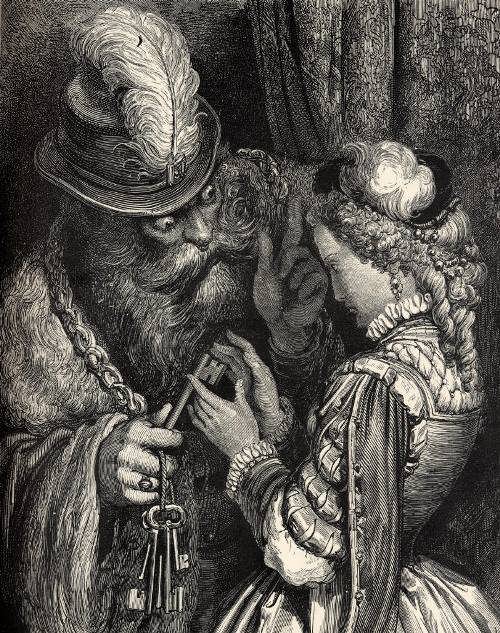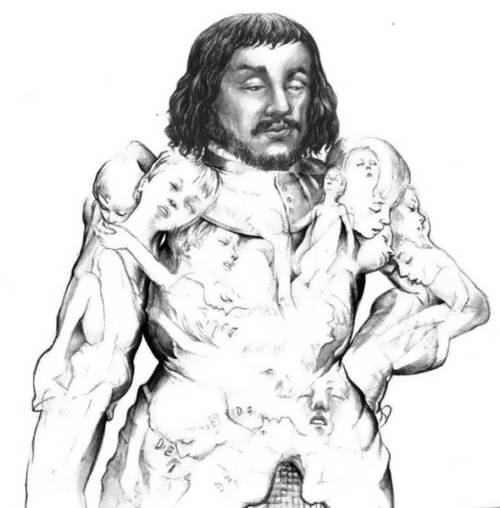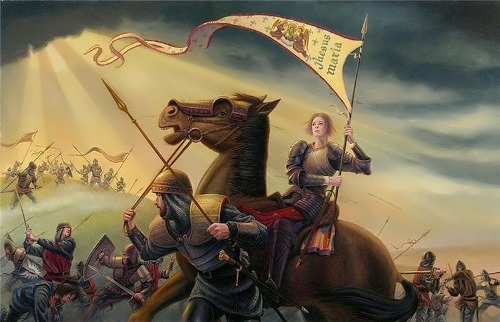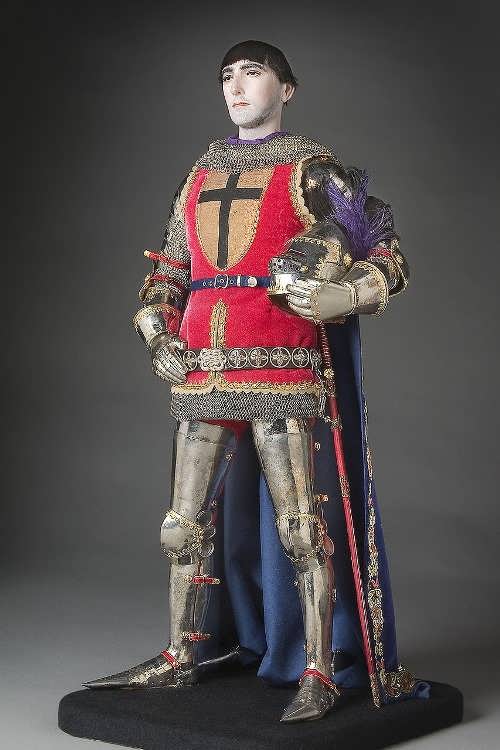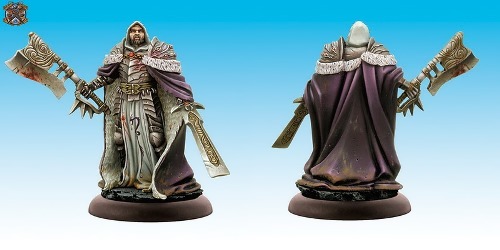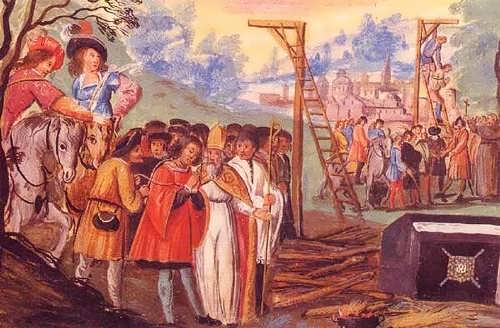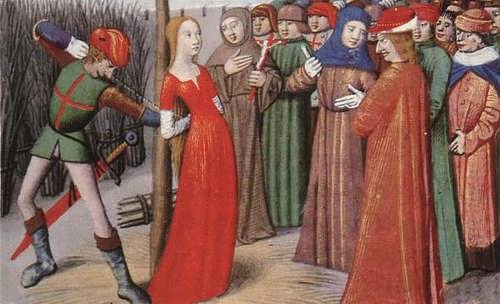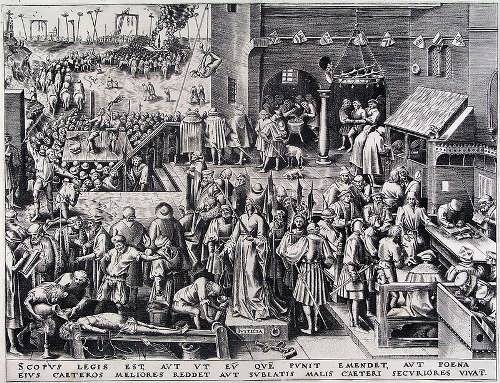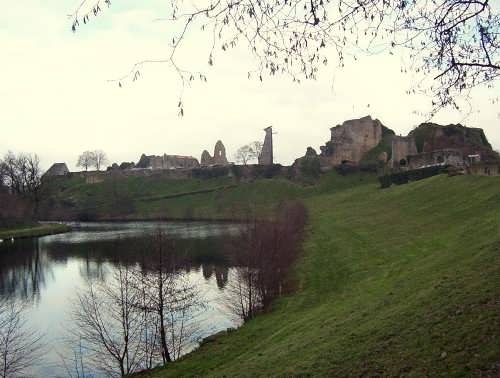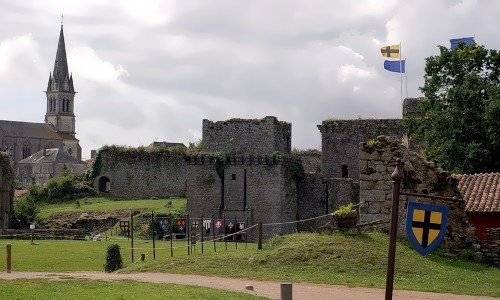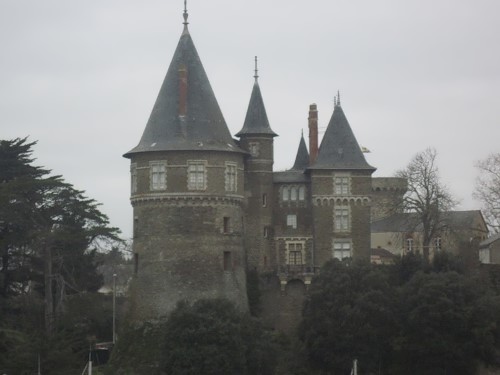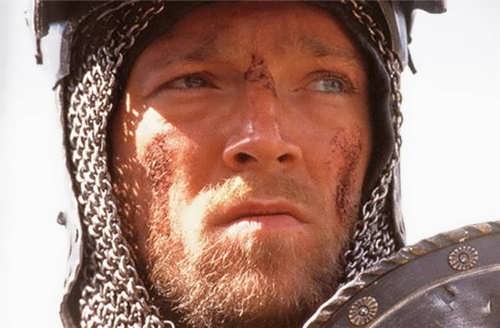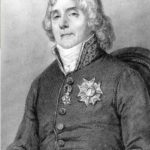Gilles de Rais – Bluebeard
Bluebeard is a literary hero, which entered the history of world literature thanks to the world famous storyteller Charles Perrault. This gloomy story was written on the basis of folk tales. Ironically, the prototype of the folklore hero was the associate of the legendary Joan of Arc – Marshal of France Baron Gilles de Rais.
Gilles de Montmorency-Laval, Baron de Rais, was born in the autumn of 1404 into one of the richest and most educated families in France.
The time was restless: there was bloody Hundred Years’ War, the royal power weakened – the British, along with the Burgundians and the rebellious French feudal lords tormented the land of the long-suffering country. Nevertheless, even at that time, parents collected a large library for their son and instilled in him an interest in knowledge. At the age of eleven Gilles was orphaned and his grandfather brought up him. He gave the boy a wonderful education. As a result, Gilles was much more educated than his peers from neighboring castles, besides he was an excellent rider and was fond of falconry and theater.
At the age of sixteen, at the request of his grandfather, the young de Rais married his cousin Catherine of Thouars. Thanks to this alliance, he became a relative of the Dauphin, heir to the royal throne. However, Gilles was cold to his wife, preferring to spend time with friends in feasts, races and exercises in fencing.
He became one of the closest friends of the future of Charles VII Victorious, moreover – his investor. De Rais paid for the royal army, endless royal feasts, tournaments and hunting. It was thanks to Gilles famous girl named Jeanne d’Arc managed to get close to the heir to the throne.
Baron de Rais sincerely believed in the divine destiny of Jeanne and one day he had a vision similar to those of a future warrior. Baron managed to persuade Charles to resume military operations against the British and headed the people’s militia. Gilles was a bodyguard and mentor for the Maid of Orleans, and she, like a muse, inspired him to more and more victories. When in the summer of 1429 they liberated Reims, Charles finally was officially crowned. Then de Rais received the title of Marshal of France.
A year later, a tragedy occurred. The king for some reason recalled Gilles from the army and in the battle of Compiegne Jeanne was captured by the Burgundians. Upon learning of the capture of his Muse, Baron offered a huge amount of money for her ransom and military assistance for liberation. However, the noble impulse of the marshal was rejected. Gilles attempted to attack the castle of Cam de Louviere, in which the Maid of Orleans was, but the attempt failed. In the end, the ransom for the heroine was made by the British. As soon as at the end of 1430 the Burgundians sold Jeanne to them, they subjected her to the Inquisition in Rouen. Joan of Arc was accused of witchcraft, through which she allegedly won her brilliant victories. By that time the faithful Gilles had recruited a mercenary army and moved to Rouen, but he was late. On May 30, 1431 the Maid of Orleans was burned as a heretic. In retaliation de Rais ruined several estates.
In 1433 the French Marshal Baron Gilles de Rais retired and settled in the family castle. His lifestyle was almost more luxurious than the king’s one. He was guarded by two hundred knights and had personal performances in theaters. In 1436, the retired marshal showed the king a grandiose adaptation of the Siege of Orleans, in which about five hundred people participated. Many noticed in it a hint of Charles VII’s meanness in relation to Jeanne, because the king did not hurry to help the people’s heroine.
Interpreters of dreams, magicians, sorcerers, alchemists began visiting his castle. The baron equipped an alchemical laboratory in a large room. Marshal of France owned a dozen castles and gradually the number of alchemical laboratories increased. Rumor described around the clock boiling cauldrons, in which sorcerers and Baron cooked innocent babies, and there were inhuman cries of the tortured.
Trusted persons sought experienced magicians not only in France, but also in neighboring countries. Francesco Prelati, the master of the occult sciences, came from Italy. It was Prelati who insisted that human sacrifices were needed to pacify the demons. And villains lured peasant children to the castles. Innocent souls were victims.
In mid-September 1440 the baron was arrested on charges of killing 300 (!) children.
On October 26, 1440 Gilles asked forgiveness from the church, the king, the parents of the children he had killed, he said that he was afraid of the heavenly judgment, and asked all those who heard him at that moment to pray for the salvation of his soul. The French marshal was strangled at about ten o’clock in the morning and then burned.
The rumor said he had killed not only innocent children, but also several of his own wives, despite the fact that he was officially married only once.

